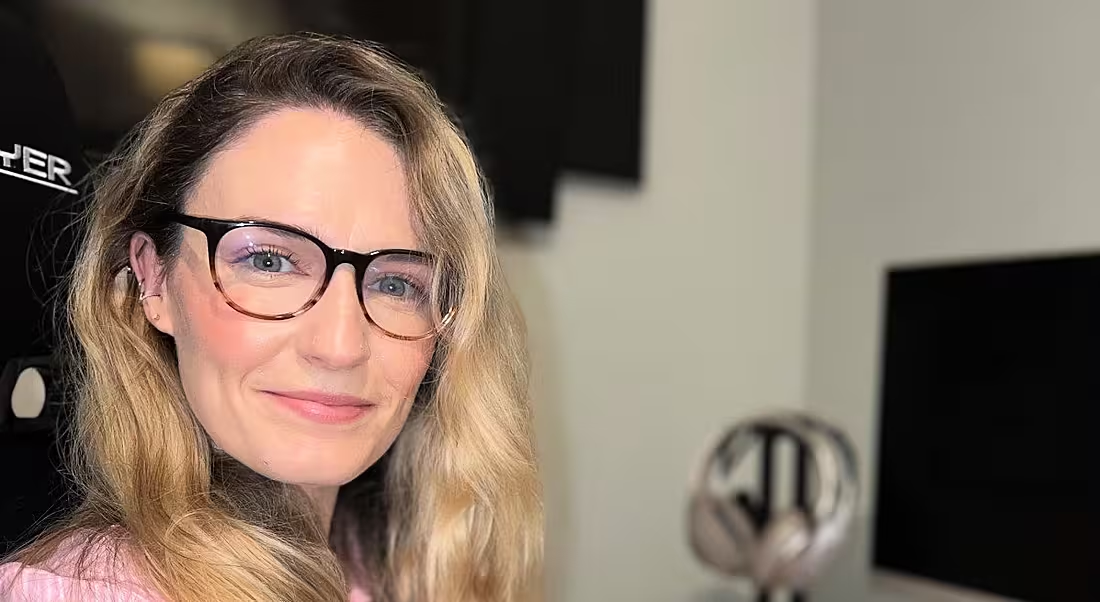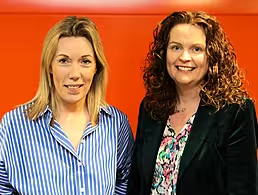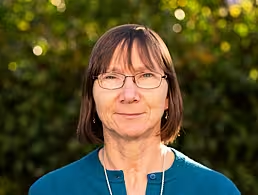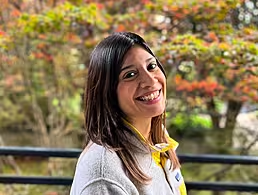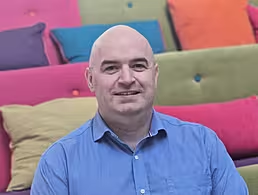Fidelity Investments’ Mary Tyrrell discusses how she gained the confidence to pursue a career in tech and her experience of the Leap graduate programme.
Mary Tyrrell’s interest in tech began when she was just 11 years old, when she received a first-generation iPod Touch, which she was “fascinated” by.
“It was the first piece of technology I owned that had a graphical user interface,” she tells SiliconRepublic.com. “I started to question how it did what it did.”
While this interest in technology continued to grow, Tyrrell’s secondary school didn’t have an IT syllabus, which ultimately dissuaded her from pursuing a third-level degree in STEM. Instead, she studied a bachelor of arts degree in history and sociology at University College Dublin (UCD) with the aim of becoming a secondary school teacher.
After spending a summer abroad teaching English in Vietnam and subsequently completing her degree, she was drawn back to the world of tech, specifically computer science. After speaking with her older brother, who had a career in IT, she was inspired to apply for a master’s in computer science conversion course in UCD.
“This course is a 16-month programme designed to equip non-computer science students with the skills they need to transition into a career in technology.
“Following this, I successfully secured a position on Fidelity’s technology graduate programme, Leap, where I started my journey as an associate software engineer.”
What was your experience of the Fidelity Investments graduate programme like?
While the master of computer science is a fantastic course that allowed me to essentially learn all the skills needed to be a software engineer in the space of only 16 months, due to its intense and fast-paced atmosphere, I felt like I needed a little bit more time to deepen my skillset, so I started looking into graduate programmes. What really drew me to the Fidelity technology graduate programme was that it was only four months long. I thoroughly enjoyed the combination of classroom training and practical real experience we gained through our placement on a full-stack project sponsored by a business unit in Fidelity.
Liaising with the sponsor team allowed us to enhance our soft skills, which are incredibly important when working in technology. This project culminated in a presentation to colleagues and senior leadership, giving me great exposure as I began my career here. I loved that we were practically applying everything that we were learning.
Tell me a bit about your current role as a senior software engineer. What does it entail?
We operate in an agile framework, so I start my day with a team catch-up, where each individual team member discusses the work that we currently have in progress and can let teammates know if additional support is needed to complete it. As developers, we are assigned ‘stories’, which are desired software features written in the perspective of an end user.
While we spend a lot of time developing, as a senior software engineer, I am involved in all aspects of the story life cycle, including requirement gathering by liaising with the other members of my team, designing what the feature will look like from both a UX and code perspective, implementing the code, testing and eventually deploying it for use by our end users.
I think there might be a misconception about software engineering that all we do is write code all day, when the reality is that every single line of code is the result of much collaboration and discussion about the need for that piece of code and the benefit it will have on an end user. I also thoroughly enjoy the opportunities I get to mentor more junior engineers in order to have a meaningful impact on someone’s career, as that is where mine was not that long ago.
What are the biggest challenges in your working day and how do you navigate them?
When I first began working in software engineering, imposter syndrome had a massive impact on my day to day. I think this started because of my unconventional route to software engineering and the fact my degree touched on quite a lot in 16 months. It was hard to feel fully comfortable with any aspect of the technology stack.
Fidelity has excellent opportunities for lateral movement, so after five years in which I worked my way up to a senior software engineer, I decided to transition into a new business unit and technology domain, Salesforce. I had no prior experience working with Salesforce, so it has been easy for that imposter syndrome to foster again. However, the support and patience I am receiving from my new squad has been fantastic. To alleviate my feelings of impostor syndrome, I try to remind myself of the benefits my prior experience brings to my new team, including the ability to bring new perspectives and ideas to the Salesforce work.
What tech trends are most exciting to you and how do you see them affecting your role in the future?
I think artificial intelligence (AI) is probably the most obvious one. The biggest impact I see AI having is faster feature development. It will take over tedious tasks, generate code snippets based on existing best practices, lead to enhanced quality by assisting in bug detection and result in optimisations by identifying inefficient parts of code.
Is there anything you know now about working in tech that you wish you knew starting out?
As I alluded to previously when I spoke about the amount of collaboration involved in feature development, I understand much better now how important soft skills are. Being able to communicate effectively by asking the right questions at various stages of the software development life cycle and by presenting architecture/UX designs to various stakeholders in the projects I’m working on, are both very important aspects of my role.
What advice would you give to software engineers who are trying to upskill?
I think it is important to be honest about what you don’t know. Be curious and ask lots of questions. Software engineering moves very fast and chances are, if you have a question on something, someone else is wondering the same thing. There are many times I have asked a question, and someone has messaged me after the meeting, thanking me for asking it as it allowed them to learn something new too.
From a tech perspective, I also think it helps to work on personal projects that incorporate your interests or hobbies. Start simple and really break problems down, then find resources that can help you build your solution. I still do this as a senior software engineer when faced with a problem presented to me from key business partners.
Don’t miss out on the knowledge you need to succeed. Sign up for the Daily Brief, Silicon Republic’s digest of need-to-know sci-tech news.
